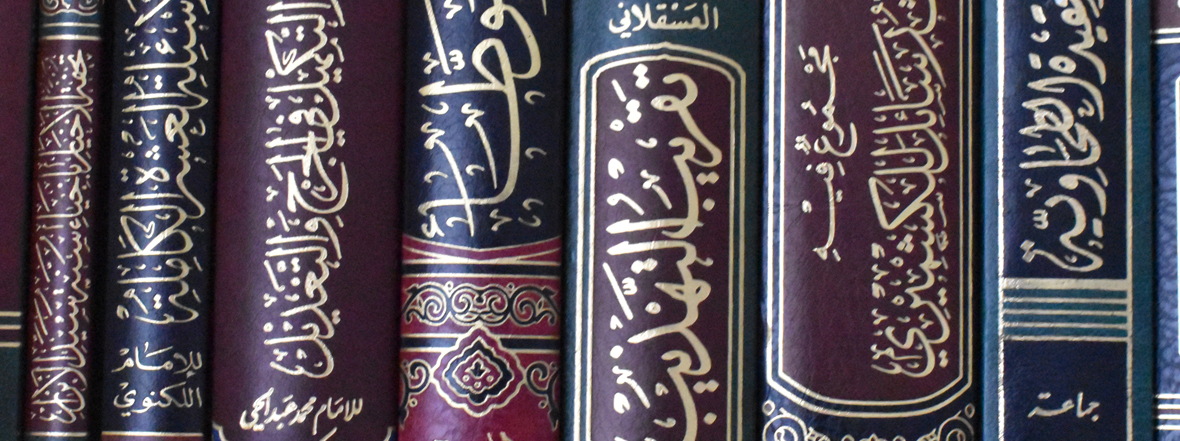The following is merely intended as food for thought for students of sacred knowledge (tullab al-ilm), teachers and those in charge of madrasas/Dar al-Ulums. It is not to undermine the services (khidma) carried out by madrasas and we are thankful to Allah for being able to even do this much, given the times we are living in. However, it is never a bad thing to introspect and analyse where improvements can be made.
The issue is that for a while now I’ve been noticing a shift with regards to the “objective and purpose of studying Islamic sciences” within our traditional religious seminaries (Dar al-Ulooms). Classically the objective was to obtain ilm and a deep understanding of Islamic sciences, and then teach others and implement it in one’s life. However, it seems that these days the objective has shifted (not in all cases) to merely obtaining the title of an “Alim/Mawlana/Shaykh/Mufti.” In earlier times, people would just study all their lives without undergoing a particular course or aiming for a particular title. The salaf and early Imams did not have a ‘limit” for knowledge or ‘graduation’ to aim for; rather, they just carried on studying and teaching all their lives. There was no such thing as “I’ve now become an Alim or Alima.” They did not have a “set number of years” or an “Alim/a course” after which they were considered scholars, rather they continued to study; and when their teacher – in any given subject – felt they were worthy to teach others they would be be given permission (Ijazah).
As time passed, the people of ilm rightfully felt the need to establish madrasas and Darul Ulooms, thereby have a proper system and curriculum in place – so that the masses can identify a “person who knows” (Alim) and not get deceived. There was a need for this system, but sadly now it seems the system is being taken for granted and – in some cases – abused. The objective now is fast becoming the obtaining of the title “Alim/a” or graduating from a dars nizami program. It is similar to what is happening in relation to worldly/secular knowledge, where instead of acquiring knowledge with the intention to help people and serve humanity, the focus is more on obtaining a degree thereby getting a good job. It seems in Islamic sciences as well, people just want to get the title however they can, so that they can maybe get a teaching or Imam post or be considered a scholar in the community. The actual acquiring of knowledge (ilm) becomes a secondary issue! This is the reason why we find people trying to window shop for the shortest “Alim course” available. If one institute is offering a 7 year program and another a 5 year one, most will rush to the latter – because one is only thinking about the title “Alim” or “Mawlana” or “Shaykh”. If you can become an “Alim” in 5 years, they why should you go for the 7 year program, they think to themselves – not realising that they will be spending two further years studying ilm. People are always on the look out for short courses and hence so many part time ones have recently sprung up. I’ve even heard of 3 or 4 year courses – whilst the salaf would study for at least 15/20 years! There is an influx of so called “Alimiyya courses” (sometimes multiple in just one city), and I am not sure if this is actually a positive thing or not. Are we compromising quality at the expense of quantity?
The term “Alim” basically means “to know” or “one who knows”, so the amount a person must know in order to be called an Alim/a will always be subjective. There is no rule in Shari’a that it should be 7 years or 10 years; anyone can make up as many or less number of years they want, because the Shari’ah has not identified the title “Alim” either!
In summary, the point I’m trying to get at is that this over obsession with and reliance on titles needs to stop. The title “Alim/a” – in my opinion – is best avoided. If the general masses need to know whether one is a genuinely learned/reliable or not, they just need to check if he or she has studied by teachers and has permission from them or not. Moreover, there is nothing wrong with having short or part time courses, but then titles should not be used. How can one who studies a 3 or 4 year part time course be a similar “Alim” to someone who studies a 12 year full day course, for example?! As such, it is best to just have a certificate testifying that a particular student studied Islamic sciences for X amount of years at a given Institute. Thereafter, when he or she starts teaching and preaching, people will automatically know how knowledgable he or she is, and weather one should take their deen and knowledge from them or not. Students should just aim to remain a genuine student (talib al ilm) all their lives, and not dwell on the title “Alim/a.” May Allah grant us the good of this life and the next, Ameen.
– Mufti Muhammad ibn Adam al-Kawthari (via facebook)






